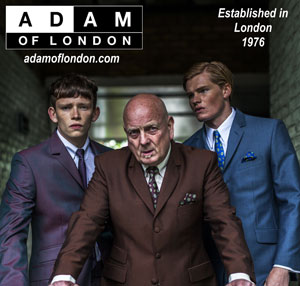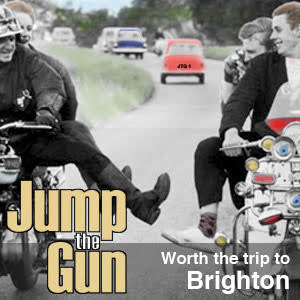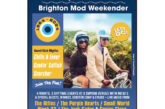
Kevin Pearce’s ode to Mod and pop culture from the 1960s onwards is given a second viewing. It’s every bit as good as I recall.
‘The reason there were Mods is because there were rock ‘n’ roll stars’ – David Bowie
‘Mod living is a euphemism for clean living under difficult circumstances. You have your own values, our own set of time scales, your own units of existence’ – Pete Meaden
‘The real Mod spirit has nothing to do with the scooter-riding, beach-fighting, lumpen Mod lore. The best Mods had the best record collections, the best wardrobes, the best bookshelves, the best minds. What else?‘ – Kevin Pearce
All the three quotes above are from the very first page of Something Beginning With O, a chunky magazine or A4 book (take your pick) that appeared on the shelves via Heavenly in 1993, disappearing soon after and now incredibly hard to find. But it is out there if you dig hard enough.
In terms of Mod-related literature, Something Beginning With O is rather leftfield. It doesn’t claim to be definitive, not least because it only has 48 large-format pages, some of those packed with images. But it does offer one man’s view of what Mod is all about. An idealised view, that’s for sure, but one that’s well worth reading. But it’s not just about Mod either. It’s about connections in music.
You see, for Pearce, Mod is just one piece in the modern-day pop culture jigsaw. From it came northern soul, punk, post-punk and if you take it to its logical conclusion (which the author doesn’t), the modern-day indie scene. Along the way, he picks out key bands and key people and takes the odd detour, but never too far from the main thrust of his argument.
As I hinted at earlier, Pearce’s view of ’60s Mod is an idealised one. He sees Mods as intellectuals, never far from some Sartre, Camus and Burroughs. They were snobs, they were obsessives, they were self-absorbed, they were cultural magpies and they loved cool sounds – jazz, blues and soul of course.
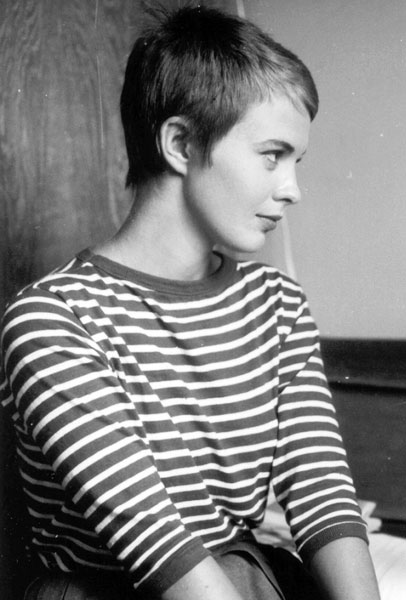
Cultural references abound in his initial piece, from Nik Cohn and the inspiration behind Saturday Night Fever to the west coast jazzers, the beat generation, French new wave flicks (Jean Seberg anyone?), Performance and Phil The Greek on Ready Steady Go, not to mention authors who referenced the look in its infancy, the likes of Francoise Sagan and Shena Mackay for example.
Pearce argues that commercialisation killed Mod, making it ‘a huge joke’ for the media. But he does concede that the spirit did live on, which takes us neatly into the rest of the book.
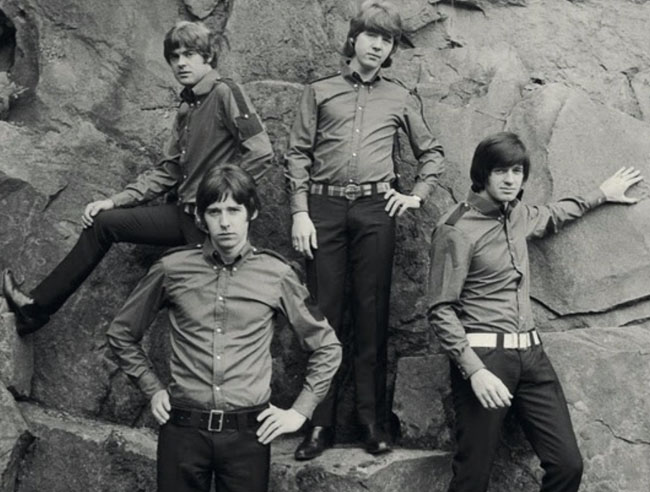
Mod created a new generation of British bands, Mods in bands if you like and here, you’ll find nothing on The Who, but you will find a nice introduction to the likes of The Creation and The Action, with a nod to The Eyes and the Small Faces. Not everyone joined a band, some stuck with the soul scene – and northern soul was born. A scene that’s either ‘totally Mod’ or ‘very un-Mod’, according to Pearce. You can easily make both arguments stick.
Fast forward a few years and you’ve got punk, a scene driven by Malcolm McLaren and Bernie Rhodes, ‘schooled in the 60s as Mods’, claims Pearce. He also claims punk and Mod were cut very much from the same cloth, plundering the best of pop culture, throwing the rest back for the masses. There was even the odd cover from those ’60s Mod bands. Those connections again.
For the rest of the book, Pearce zooms in on who he sees as the ‘great characters’ of the post-punk era – Vic Godard, Kevin Rowland and Paul Weller.
Vic Godard you ask? Former frontman with Subway Sect and according to Pearce, one of the ‘great unknowns’. Not really to my personal taste and probably the weak point of the book for me. Pearce definitely gets it right with the other two though.
The piece on Weller is particularly good, if not particularly kind to the Mod revival. Referencing the Mod revival, he comments: ‘Most of the people involved were stupid, ovine, bovine. The whole thing was totally against the true Mod spirit.’ Harsh.
But he goes on to argue that Weller’s ‘long-time Mod weakness’ was a positive one, bringing the likes of The Creation, Colin MacInnes, scooters and sharp gear back into public consciousness. The downside? An ‘ugly sea of green’ whenever The Jam played. Whatever way you look at it, the article is one of the more interesting pieces you’ll read on the cult of Weller.
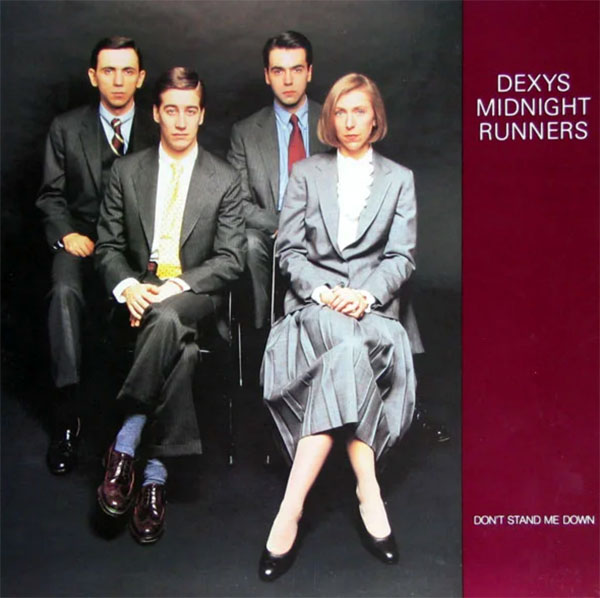
Likewise, the piece on Kevin Rowland is equally brief but equally fascinating. How, in a few short years, he took Dexys from donkey jackets and wool hats through dungarees and into Brooks Brothers suits, penning some of the biggest hits of the 80s, whilst also confusing and at times alienating his fanbase. It starts with Geno and ends with Don’t Stand Me Down and the theme from Brush Strokes. Isn’t that something?
As you might have guessed, I’m a fan of the book, primarily because the book happily sits outside the general mass of more obvious ‘Mod’ writing. Its biggest appeal, aside from Pearce’s engaging literary style, is that it’s not overly reverential, perhaps because it is written from outside the Mod scene, not from the inside talking it up. But above all, it’s a book where facts are often secondary to opinion.
Something Beginning With O is the book form of a heated, but well-informed debate in the pub or club.
It’s a shame more authors don’t have the confidence to follow a similar path, rather than hiding in the same old, well-worn territory and overused anecdotes, facts and photos. Hard to find, but well worth seeking out.
Search for copies of Something Beginning With O on eBay
Copies of Something Beginning With O on Abebooks

